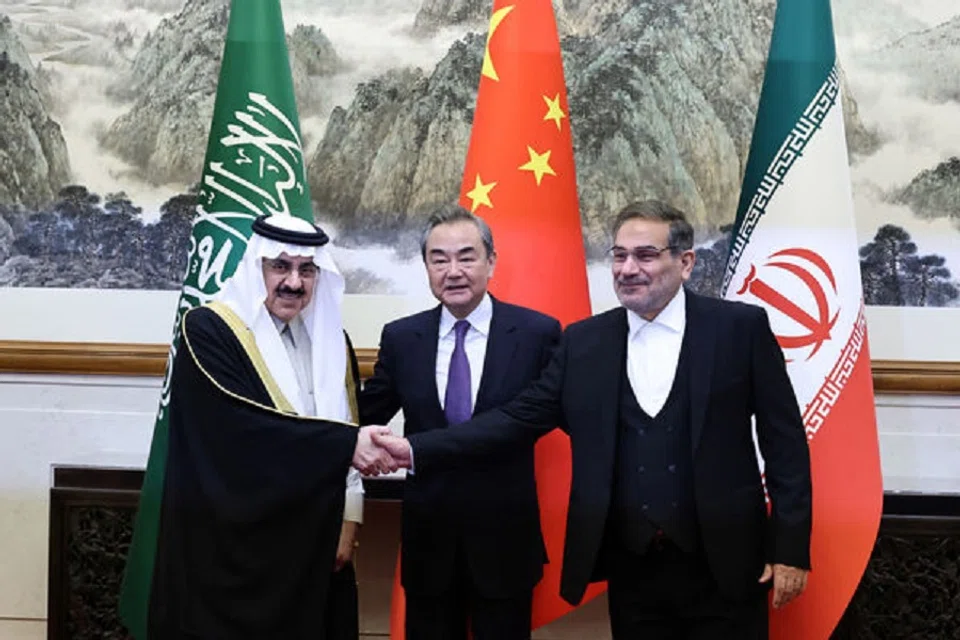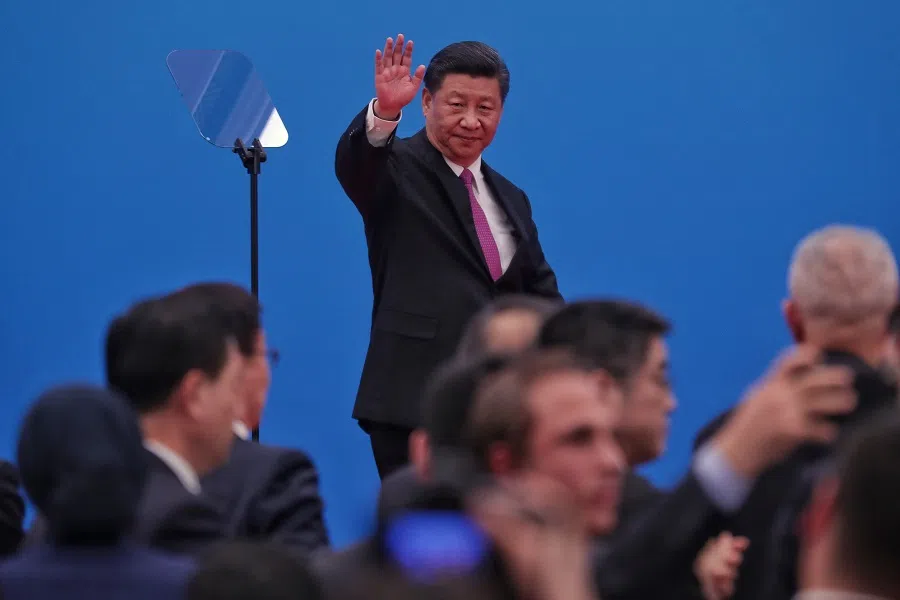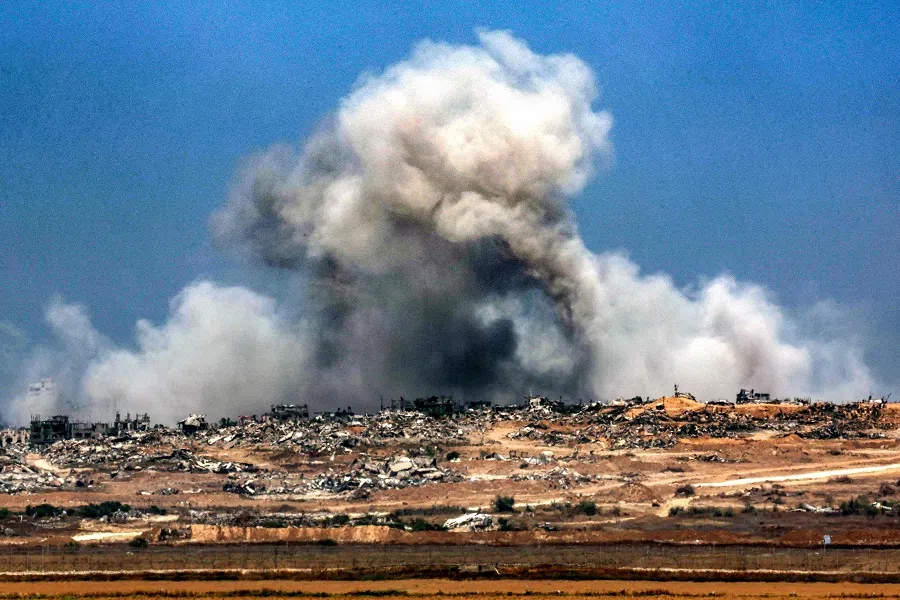China’s initiatives in the Middle East and Israel
When interacting with Middle Eastern countries, China often emphasises the importance of civilisation and development, as well as sympathy for the suffering of the people there, says academic Fan Hongda. This approach resonates with the people of the Middle East, and may offer a valuable development option in today’s uncertain world.

In the past decade, China’s diplomacy has undergone great changes due to broader shifts in the international landscape. In recent times, several emerging markets and developing countries have embarked on a fast track of development, with multiple centres of growth gradually taking shape across different regions of the world. These emerging countries are gaining increasing global influence and are eager to build a more peaceful and orderly path for global development.
A changing international order
Actually, even the US and European powers have to admit that the international order they have long dominated is facing serious challenges. The world does need new development paths. There is no doubt that “great changes unseen in a century” is a reality that many countries have to deal with. China is widely regarded as the world’s second most powerful country. As a world power of this standing, it is impossible for China not to respond to the changing world.

So far, China has introduced a number of initiatives, such as the Belt and Road Initiative, the Global Security Initiative, the Global Civilisation Initiative, the Global Development Initiative and building a “community with a shared future for mankind”. I believe that even countries that are unfriendly towards Beijing would find it difficult to criticise these proposals, as they are designed to benefit the global community as a whole.
... I firmly believe that more Iranians prefer to have a closer relationship with the US rather than China.
Civilisational narratives and the human factor
The Chinese initiatives mentioned above are particularly relevant to the Middle East — a region marked by frequent conflicts, diverse civilisations and an urgent need for development. A notable example is China’s successful mediation in 2023, which helped Saudi Arabia and Iran reach an agreement to restore diplomatic relations. When interacting with Middle Eastern countries, China often emphasises the importance of civilisation and development, as well as sympathy for the suffering of the people there.
In recent years, there have been many discussions about US-China competition in this region, and even suggestions that China seeks to challenge America’s position there. However, even when US forces withdrew from Iraq and Afghanistan, and when China’s diplomacy in the Middle East was going very smoothly, I did not think that China could challenge the US’s position there.
The US has the upper hand
So far, the US still far outpaces China in both hard and soft power there. Even in Iran, based on my observations there, I firmly believe that more Iranians prefer to have a closer relationship with the US rather than China. President Trump’s recent visit to the three Gulf countries once again confirmed my point of view.
... if Tehran improves its ties with the US, there is a greater possibility for Israel-Iran relations to improve as well — which would be beneficial for Israel.

China-Israel relations are worth thinking about. In fact, I became quite concerned about China-Israel relations after the outbreak of the Gaza war in 2021. In my view, the Palestinian issue has long been one of the core factors shaping China’s attitude toward Israel over the past few decades. When the October 7 attacks occurred, my immediate reaction was concern that China-Israel relations might suffer further damage. Unfortunately, subsequent developments confirmed that my concerns were not unfounded.
Do these two countries have fundamental conflicts of interest? I believe no one can give a positive answer to this question. But it cannot be ignored that third-party factors often affect China-Israel relations. This is an issue that both countries must take seriously if they really want to have a healthy bilateral relationship. China and Israel should work hard to avoid letting third parties become obstacles to their bilateral relations.
For example, Israel often expresses concern about the deepening China-Iran relationship. I have also seen reports of some Israelis disliking or even opposing the ongoing US-Iran negotiations. I believe these worries are unnecessary. After all, it is more important for Israel to improve relations with Tehran rather than destroy the Islamic Republic. I am convinced that if Tehran improves its ties with the US, there is a greater possibility for Israel-Iran relations to improve as well — which would be beneficial for Israel.
A peaceful and stable Middle East is more beneficial for China. Such a Middle East is also advantageous for regional countries, including Israel.
China: promoting development and peace in the Middle East
A peaceful and stable Middle East is more beneficial for China. Such a Middle East is also advantageous for regional countries, including Israel. Israel has no reason to worry about China’s motives in the region, because China’s diplomacy in the Middle East is not about creating conflicts, but about promoting development and peace, while seeking economic opportunities. I believe this aligns with what Israel also desires.
Let’s go back to the October 7 attack, it is indeed a disaster that Israel and the Jewish people should never forget. I have noticed that many Israelis have been reflecting on why it happened. The international community remains deeply divided in its views on the ongoing Gaza war. Last October, I completed my one-year stay in the US. During my time there, I witnessed the social divisions caused by the Israeli-Palestinian conflict.

Regarding China’s response to the October 7 tragedy, there have certainly been some statements from China that Israel finds unfavourable. However, I hope Israeli friends can take note that both Chinese scholars and the public widely criticise — and even condemn — the Hamas attack. Indeed, there are quite a number of Chinese people who view the October 7 attack as an act of terrorism.
The international community’s real support for China’s initiatives is still quite insufficient.
Optimism about China-Israel relations
When I was a visiting scholar at Tel Aviv University more than a decade ago, I often heard Israeli friends say that relations with China would be the country’s most important bilateral relationship. Although China-Israel relations are currently facing some troubles, to be frank, I am not pessimistic about the future of the bilateral relationship. Because the two countries have no fundamental conflicts of interests.

Judging from the cases in the Middle East and Israel, despite Beijing’s considerable efforts, it must be said frankly that the international application of China’s initiatives remains relatively limited. In other words, the international community’s real support for China’s initiatives is still quite insufficient. On one hand, China’s means and capabilities to promote these initiatives are not yet strong enough. On the other hand, the international community is home to diverse views, and China’s proposals represent just one among many.
However, I have no doubt that the Chinese approach offers a valuable development option in today’s uncertain world. Looking ahead, whether China’s proposals can achieve greater success will depend on two key factors: first, China’s own achievements and continued efforts; and second, the ongoing missteps of its competitors — such as the Trump administration’s decision to suspend international student admissions at Harvard University.





